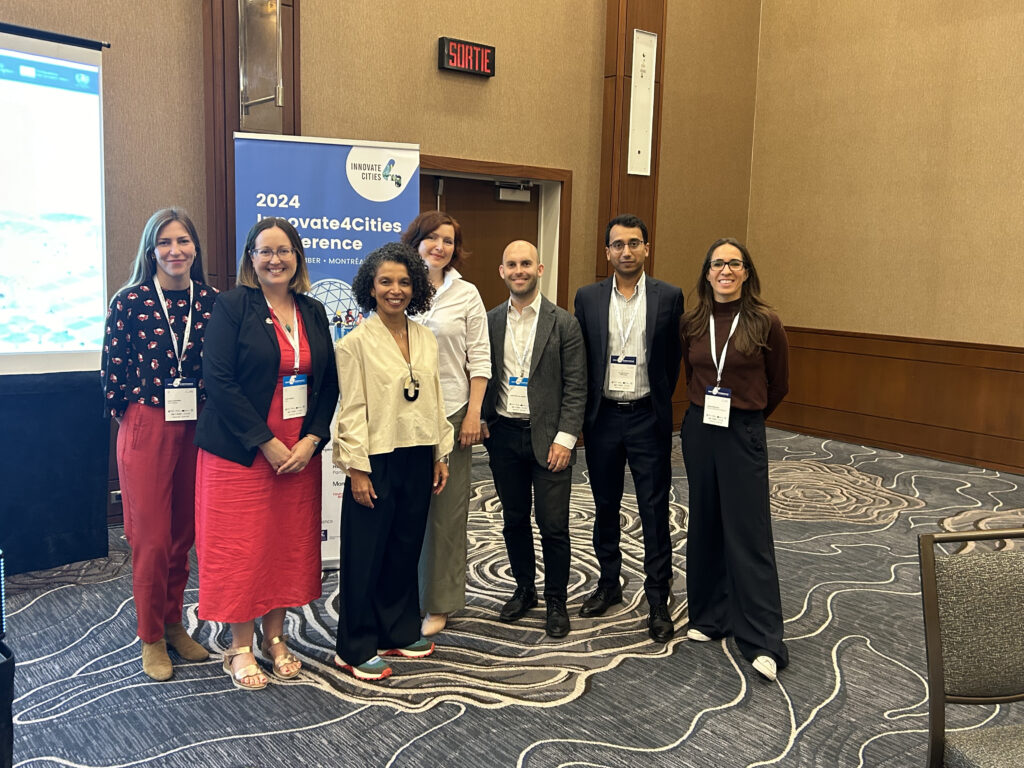
Accelerating Local Climate Action Through Partnerships: Session at Innovate4Cities Conference Unpacks the Climate Project Journey
The recent Innovate4Cities Conference in Montreal brought together a wide array of professionals and city officials to discuss how to advance climate action in cities. The session “Accelerating Local Climate Action through Partnerships: Navigating the Urban Project Lifecycle with the Global Covenant of Mayors and the City Climate Finance Gap Fund” was a powerful example of how collaboration and interactive dialogue can drive meaningful urban climate action forward. Hosted by the City Climate Finance Gap Fund in partnership with GCoM, this session was designed to break down the complex urban climate project cycle—from planning and strategy development to implementation—by facilitating open conversations among experts and participants.
The session’s format invited participants to engage actively and deeply in targeted discussions. Their knowledge and expertise guided the conversation, facilitated by key partners and promoting learning from one another.
Here are a few key takeaways from the discussions:
- Cross-Sectoral Engagement is Critical: Across-sectoral and participatory approach enhances the development of robust climate action plans. As Lucy Lavirotte, from ICLEI Africa, mentioned: “It’s not just about having technical expertise; it’s about ensuring that everyone—from all departments to local communities—is part of the conversation from the start.”
- Access to Data and Stakeholder Support: Feasibility studies are often hampered by the challenge of accessing good data. Data accessibility remains a critical issue for cities. However, another key theme was the importance of securing political and community buy-in. “Even if a project is technically or financially feasible, it won’t succeed without the right stakeholders on board,” said John Michael LaSalle from CCFLA. Engaging communities and ensuring they are invested in the project’s success is just as vital as the technical components.
- Innovative Approaches to Urban Greening: The session also shed light on the need for innovation in long-term urban projects, such as urban greening. Planning ahead for the specific plant species needed and understanding the ongoing costs of maintenance are essential for success. “It seems like a no-brainer, but we must think about budgeting for water, expertise, and community ownership from the start,” said Cathy Oke, head of the Melbourne Centre for Cities.
- Political Will and Private Finance: Securing funding for urban climate projects remains a challenge, and cities need a better understanding of what private finance is looking for. However, as Katie Walsh, from CDP provocatively suggested, “Maybe we need to flip this on its head—do private finance expectations also need to change? Especially for projects in the Global South.”
As the session concluded, it was clear that the path to successful urban climate action requires more than just technical expertise and funding. It takes cross-sectoral collaboration, community ownership, and innovative thinking at every stage of the project cycle. As Chandan Deuskar, an expert from the World Bank, summarized: “There’s so much more that’s needed in terms of institutional, political, and cultural preconditions for climate action to succeed, and partnerships like the GCoM-Gap Fund can help address those challenges in different ways”.